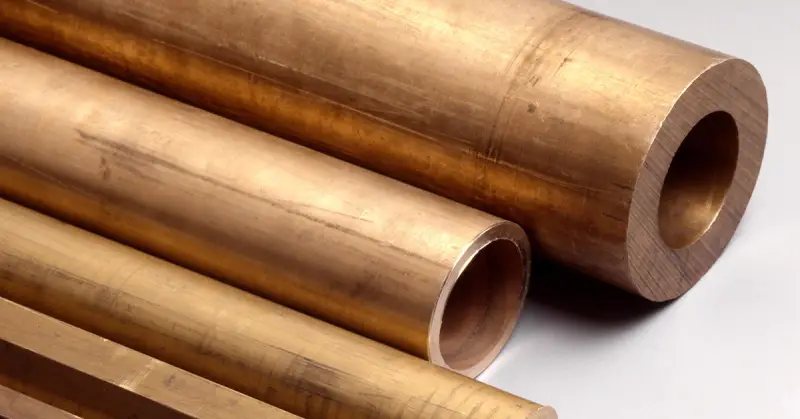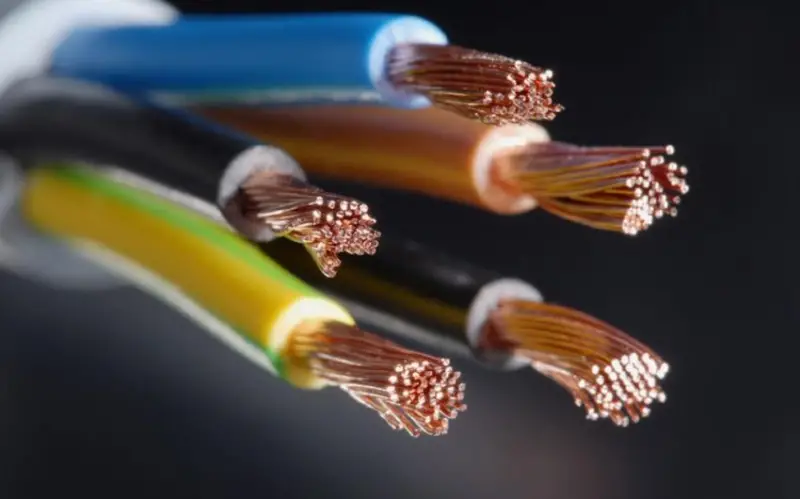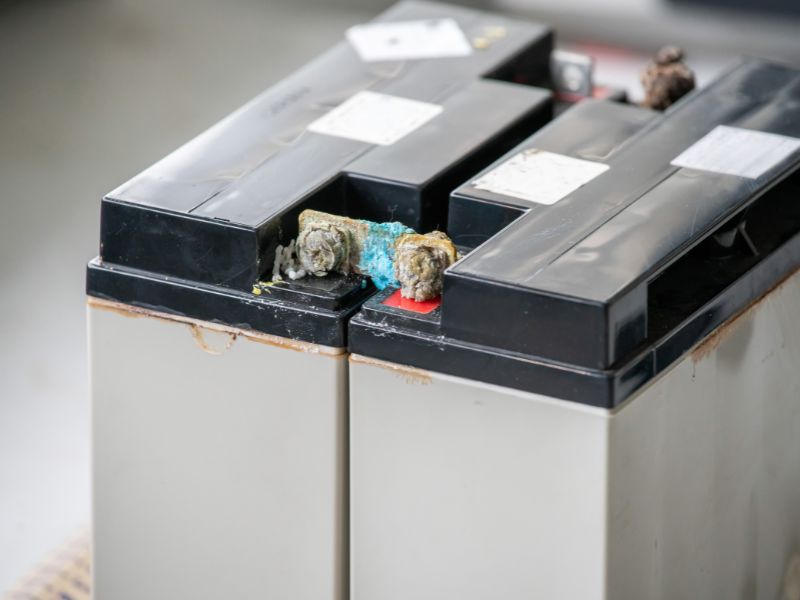Copper is a widely used metal in a variety of industries and applications due to its high conductivity and ductility. One of the common questions about copper is whether it is attracted to a magnet. The answer to this question is no, copper is not magnetic.
Magnets have a north and south pole and are attracted to metals that are also magnetic such as iron, nickel, and cobalt. Copper, on the other hand, is not magnetic and will not stick to a magnet. This is because copper is a non-ferrous metal, which means it does not contain iron. Non-ferrous metals are not attracted to magnets and will not stick to them.
In conclusion, if you have a strong magnet, it will not stick to a piece of copper. This property of copper makes it an important metal in electrical applications where a non-magnetic material is required. Copper is also used in many other applications where its non-magnetic properties are beneficial, such as in plumbing and jewelry-making.
Does Copper Stick To A Magnet Overview
Copper is a non-ferrous metal, which means it does not contain iron and therefore, is not attracted to magnets. This is an interesting characteristic of copper, as it is one of the best conductors of electricity, making it a critical component in many electrical applications.
When it comes to magnetic properties, it’s all about the presence of iron in a material. Magnetic materials, such as iron, nickel, and cobalt, are attracted to magnets due to the alignment of electrons within the material. In contrast, copper and other non-ferrous metals do not contain enough iron to exhibit any magnetic properties, making them non-magnetic materials.
So, to answer the question, no, copper does not stick to a magnet. In fact, copper is often used in applications where it is important to have a non-magnetic material, such as electrical wiring and plumbing.
Comparison table that summarizes the differences between copper and magnets
Copper and Magnets are two distinct materials with unique properties that determine whether they stick to each other or not.
Let’s start with Copper:
- Copper (Cu) is a chemical element with the atomic number 29.
- It is a soft, ductile, and malleable metal that is known for its high electrical and thermal conductivity.
- Copper is also resistant to corrosion, making it a popular choice for electrical wiring and other applications where a durable and long-lasting material is required.
Now let’s move on to Magnets:
- A magnet is an object that generates a magnetic field, which is a force that attracts certain materials, such as iron, nickel, and cobalt.
- Magnets have north and south poles and the strength of their magnetic field is determined by their composition, size, and shape.
- Magnets are used in a variety of applications, such as in motors, generators, and compasses.
When it comes to the question of whether copper sticks to a magnet, the answer is no. Copper is not a magnetic material, and it will not stick to a magnet.
| Property | Copper | Magnets |
|---|---|---|
| Composition | Non-ferrous metal (does not contain iron) | Ferrous metal (contains iron) or a composite material |
| Magnetic properties | Non-magnetic | Magnetic |
| Conductivity | High | Low |
| Durability | Resistant to corrosion | Can corrode over time |
| Uses | Electrical wiring, plumbing, jewelry-making, cookware, etc. | Motors, generators, compasses, etc. |
In conclusion, copper and magnets are two distinct materials with unique properties that determine their use and behavior. Copper is a non-magnetic metal that is widely used in electrical and other applications, while magnets generate a magnetic field and attract ferrous metals.

Table of equipment to work with Copper and Magnets
If you’re interested in exploring the properties of copper and magnets, you will need some basic equipment to perform your experiments. Here’s a table that lists the equipment you may need to work with copper and magnets and determine whether copper sticks to a magnet:
| Equipment | Purpose |
|---|---|
| Copper wire or sheet | To provide a sample of copper to test |
| Strong magnet(s) | To test whether copper sticks to the magnet |
| Multi-meter | To measure the electrical conductivity of copper |
| Safety glasses | To protect your eyes while handling equipment |
| Ruler or measuring tape | To measure the size and shape of the magnet and copper sample |
| Scale or balance | To measure the weight of the magnet and copper sample |
Note: The exact equipment you need may vary depending on the specific experiments you want to perform and the level of detail you want to achieve. Be sure to follow all safety protocols and guidelines when working with any equipment, and seek the assistance of a knowledgeable professional if you’re not sure how to use any of the equipment.
In conclusion, with the right equipment, you can explore the properties of copper and magnets and determine whether copper sticks to a magnet. Whether you’re a scientist, engineer, or hobbyist, these experiments can be both fun and educational.

Step-by-step Guide on How to determine whether Copper sticks to a Magnet
- Gather your equipment: You will need a strong magnet, a piece of copper wire or sheet, a ruler or measuring tape, a scale or balance, and a pair of safety glasses.
- Prepare the copper sample: Cut or obtain a piece of copper wire or sheet that is of a suitable size for your experiment. Make sure that the sample is clean and free of any debris or contaminants.
- Measure the copper sample: Use a ruler or measuring tape to determine the size of your copper sample. Record this measurement for future reference.
- Weigh the copper sample: Use a scale or balance to determine the weight of your copper sample. Record this weight for future reference.
- Hold the magnet near the copper sample: Hold the strong magnet near the copper sample. Observe whether the copper sticks to the magnet.
- Repeat the experiment: Repeat the experiment several times to confirm your results. Try holding the magnet at different angles and distances from the copper sample.
- Record your observations: Write down your observations in a notebook or on a sheet of paper. Be sure to record whether the copper stuck to the magnet, the angle and distance at which it was held, and any other observations that you think may be relevant.
- Wear safety glasses: Be sure to wear safety glasses throughout the experiment to protect your eyes.
In conclusion, with these simple steps, you can determine whether copper sticks to a magnet. By performing this experiment, you will gain a deeper understanding of the properties of copper and magnets, and you may also develop your critical thinking and problem-solving skills.
FAQ
Does copper stick to a magnet?
Copper is not magnetic, meaning that it does not produce a magnetic field and does not stick to magnets. Copper is a conductive material, meaning that it is an excellent conductor of electricity and heat, but it is not magnetic.
Why doesn’t copper stick to a magnet?
Copper does not stick to a magnet because it is not a magnetic material. Magnetic materials are materials that are capable of producing magnetic fields and interacting with other magnetic materials. Copper, on the other hand, is a conductive material that is not magnetic.
Is copper a good conductor of electricity?
Yes, copper is an excellent conductor of electricity. In fact, copper is one of the best conductive materials known to man. This makes copper an important material in the electrical and electronics industries.
Can a magnet affect copper in any way?
No, a magnet cannot affect copper in any way. Copper is not a magnetic material and does not produce a magnetic field, so it cannot be affected by a magnet.
Is copper magnetic in any form?
No, copper is not magnetic in any form. Copper is a non-magnetic material, meaning that it does not produce a magnetic field and does not interact with magnetic materials.



Leave a Reply